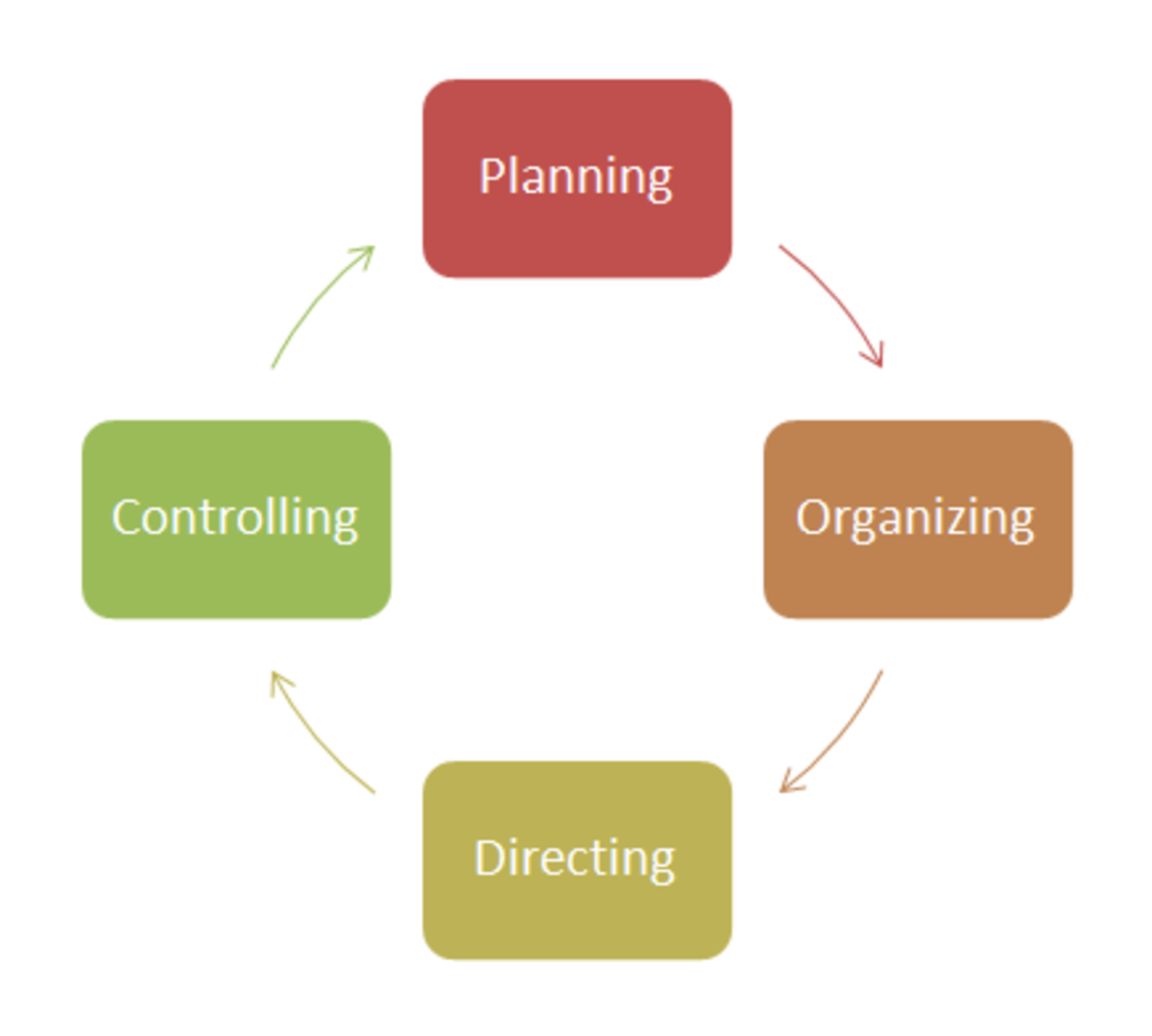How to Be the Best Assistant
I wish I could tell you to just do your work and your boss will love you. Following one simple rule in order to be the perfect assistant would be great! Sadly, that will never be the case. But I can share some rules about how to be a better assistant!
One more thing -- the following guidelines are for dealing with reasonable persons. If your boss is an unreasonable demanding pill, I’m quite sorry to be the one to tell you this, but it’s not unlikely that things they praised today will be inadequate tomorrow.
That said...
The best assistant keeps a deadline.
If you are presented with an achievable deadline, keep it! If you are concerned you may not be able to keep that deadline, tell someone… and the sooner, the better.

The best assistant reads the body language and facial expressions of their superiors, and maintains their own positive body language.
In other words, they know when to approach with information or a question; they have also learned to recognize when to back off. Think of the workplace as a jungle… when the lion is on the prowl, the less kingly of a species scurries. Don't be cowed by your superiors, but don't be in their way, either.
An effective assistant will maintain their own positive body language, even if they disagree with what they are hearing. Folded arms is a no-no – you are not a five-year-old. Facial mugging might make your friends laugh, but it is unlikely to appeal to your boss, especially the corporate type.
Excellent assistants keep quiet.
This means: no whining, gossiping, humming, talking loudly or to yourself, cracking gum, stomping when walking, or using the highest ringer on the phone. You will have to generally avoid attention-seeking actions. It may be common sense, but sometimes these things can be easy to forget.
The best assistant builds relationships with other departments.
Help someone in another department, and the odds are good they’ll do the same for you. Word will get to your boss and they will realize your worth. A coworker might even write up a compliment without telling you and send it to the Human Resources department (it has happened for me, and it can happen for you, too!)
An effective assistant speaks clearly.
Personally, this is the hardest one for me. If I don’t slow myself down often enough, all my words tumble into one long, slurred word which my best friend would understand, but not my boss! Enunciate, and it will be appreciated by the powers that be.
Stay at Your Desk!
Do not disappear before a meeting:
If at all possible, be at your desk for the 15 minutes immediately preceding a meeting in case your director or manager has a last-minute request.
The best assistant listens to office chatter, but doesn’t become involved.
This can be a troublesome tightrope to walk, but you must do it. Remember, you are the eyes and ears of your boss and if she asks what you have heard, you should be able to answer.
A valuable assistant never feeds their superior false information.
This is known as playing both sides of the fence, and it will get you in big trouble. You are not a secret agent, you are someone's assistant. So act like it! When your boss discovers you are not acting in his or her best interests, you will be thrown out on your double-crossing booty.
The savvy assistant knows their bosses' favorites, and avoids running out of them.
Little things can make all the difference, so keep your eyes open and find out what your boss likes. Need suggestions? Here:
- How early in the day to start scheduling meetings, and how late to end them.
- Whether they want you to open their mail, or prefer to do it themselves.
- From whom they welcome a knock on their door, and who to keep away at all costs!
- Their favorite color. It couldn’t hurt… and you never know -- wearing their favorite color when making requests could work to your advantage someday.
- How they like their coffee or tea. Even if you never lift a finger to make them something to drink, know what they enjoy. Medium roast high-test in the morning with one cream and no sweetener? Check. A large iced, flavored decaf with half a cup of milk in the afternoon? No problem. (Complicated coffee preferences can be made much easier with a Keurig or other pod-type coffeemaker.)
So avoid running out of their favorites (and I’m not just talking coffee). It will jeopardize the good mood of your boss, and who needs that? Their best pens, the right size lead, that special calendar paper they like so much – whatever it is, don’t let the last one be used without ordering more. Keep an extra in your desk just in case. Hoarding? Not exactly. Consider it insurance!
An exceptional assistant anticipates their superior’s needs.
When your superior requests information, find it (quickly, and double-check for accuracy!), then hand it over. But know your boss. Before letting it leave your hands, ask if they are also interested in any related inquiries (that you have already prepared in your back pocket). If they are, you can present them with that and hand it over immediately without redoubling my efforts. Your boss will remember that you made it easier for them.
Example of a Thoughtless Question
“In what color would you like this pen? It comes in black, navy, indigo, red, adobe, bright pink, light pink, dark green, bright green, light green, kiwi, yellow, purple, brown, wormwood, and cerulean.”
Yellow? Light pink? Kiwi? Unless you work for an artist, don’t bother your boss with such questions. Go boldly forth and order the assorted pack, or a single pen in black or blue. If your boss wants something special, they'll tell you.
The most valuable assistant asks the right questions.
They do not ask thoughtless questions. If you can probably figure out the answer, or if the wrong answer is unlikely to cause trouble the first time you get it wrong, try making the decision yourself.
The best assistant doesn't probe for personal information.
Taking a note as to the date of their birthday or anniversary is just right; asking your boss to list the reasons why they married their spouse is too much.
The appropriate assistant gives compliments, but not too many.
You may like her handbag, or his jacket, but too many gushing compliments can lead your boss to roll their eyes internally when they talk to you, and pass you over as a suck-up.
Smart assistants don't dress like slobs.
Even the snappiest dressers have days they just can’t figure out something exciting to wear, but push through it. It may be difficult sometimes (at least, for me!) but you will appear pulled together and therefore more likely to be successful in your work. The rumpled look may be all right on the weekend, but if you opt for clothes that fit well and are clean, you will be taken much more seriously. That goes for uniforms, too… if it doesn’t fit right, alter it. Unfortunately, looks-ism does exist... but it doesn't have to happen to you!
Put Yourself In Their Position
The Person
| Needs
| Wants
|
|---|---|---|
Organizer
| A workstation
| Near the restroom
|
Presenter
| A projector
| Access from the left, not the right
|
Attendees
| The day's program
| Comfortable chairs
|
Custodian
| To know when to begin cleaning up
| To know as soon as possible
|
Put yourself in other people's shoes and troubleshoot in advance. The event will be a success, your boss will look good, and you will be the real star!
The best assistant thinks ahead.
Avert disaster by doing a run-through of a planned event in different capacities. The fewer surprises you come across that day, the more you can focus on making everything run smoothly, and the more competent and successful you will appear.
The perfect assistant doesn’t waste their boss’ time.
Their time is valuable (it's why they earn the big bucks, after all), so keep it in mind. To that end, create a list of things that can wait until he or she walks by. Don’t lose the sheet! I keep my list directly to my right, within arm’s reach, and on a sticky note attached directly to my desk.
The Most Important Thing an Assistant Can Do
The most important, in my opinion, is to find one's own style.
The perfect assistant has already found his or her own style and uses it toward their success all the time. Personal style is so much more than clothes and demeanor -- in the workplace, personal style extends to graciousness, professionalism, warmth, reliability, one’s choice of words, recognizing how much to share with others, keeping one’s emotions in check, clearing up confusion, identifying where to go when they need assistance… and much more.
Becoming a better assistant is an ongoing journey, but with time and effort everyone can improve their assisting style. So get out there, and show your boss what you can do!








